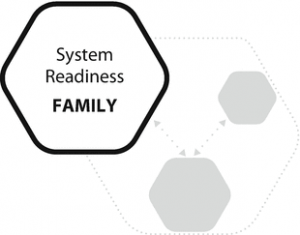“I am a GD (General Duties) soldier and don’t have any technical qualifications. Should I risk taking early retirement?”
“I am above 45. Will I get a job? Or should I continue in the military?”
“I am a Sapper but I don’t have any MES/BRO (Military Engineering Services/Border Roads Organisation) experience. I am also not an M Tech. Will this matter?”
“I want to do something of my own. Would moving out to do this be the right decision? Will, I succeed”
“The economy is in the doldrums. Is this the right time to enter the civilian world?”
These are some of the questions which veterans – from the Army, Navy, and Air Force, and their spouses – struggle with while considering voluntary early retirement. Such angst is but natural. They are contemplating a life-changing decision, so such a decision is best taken after careful consideration.
Here are 12 questions to help you arrive at the right decision about whether or not to take early retirement:
- Are you clear about why you want to quit?
- Are you clear about what you want to do in the civilian world?
- What are your current responsibilities?
- Are your expectations from the civilian world realistic?
- Do you have one foot on the ground?
- Do you understand different earning options?
- Are you below or above 45 years of age?
- Are you planning to settle down in a metro?
- Do you have any special technical qualifications? Do you have any industry experience?
- Are you well networked?
- Are you ready to learn and do you have the time to prepare? Are you flexible and willing to adapt?
- Is your family ready to transition too?
Let us examine each one of these questions a little more.
- Are you clear about why you want to quit?

If you are considering quitting the military, then the reason for quitting should be very clear to you. Not only that, but you must also validate that reason as being correct. Why? Because I have met veterans who say, “The moment I quit, I realized what a blunder I had committed.” You would not want that to happen to you.
Let me give you an example. I left the Army because my field soldiering days were over, and I was looking ahead at desk jobs in senior positions, which I did not enjoy. My second reason for leaving early was, paradoxically, because I wanted to spend more time with my family. But after I left, I found that my assessment on the second count at least was not correct. After leaving, I started a business, where I found even lesser time to spend with my family! So though I have never regretted my decision to leave, I feel that I should have looked at my reasons more closely. Those might have helped me take better decisions for the future.
What are your reasons for leaving? Need more money? Tired of continuous deployments? Want to get away from the military hierarchy and red tape? Did not get promoted? Or something else?
Consider your reasons. Be sure that they are the correct ones. Then take the step.
- Are you clear about what you want to do in the civilian world?

“I don’t know yet what to do, but I will figure it out!”
That is what the majority of transitioning soldiers say, but that is the worst way to approach transitioning. The right way is when you are exactly clear about what you want to do. Then you can focus clearly, and prepare well. Some of the soldiers I have met prepared really well so that they stepped out of the military and right into their next chosen career. They also planned very well and made great second lives for themselves and their families.
I am a great fan of clarity and I strongly root for that in my book on the military-to-civilian transition.
- What are your responsibilities at retirement?

The lesser the responsibilities that you have at the time of your retirement, the greater are the risks which you can take, and the more options you have.
So list and weigh your responsibilities carefully. Do you have children to put through school? Do you have to buy or rent a house? Do you have other dependents to take care of? If you do not plan well, then you will be under pressure from Day 1 to take care of these responsibilities and you will find it difficult to focus on your own pursuits.
So, if needed, take a little more time to take care of your responsibilities. Try to identify ways of doing this, so that thereafter, you are much freer to go after your chosen path.
- Are your expectations from the civilian world realistic?

Many soldiers have unrealistic expectations from the civilian world. They think that just because they were successful as soldiers, they will be successful in the civilian world too. That might or might not happen. For example, I am regularly shocked at the many soldiers who start a business based on unrealistic expectations and flimsy preparation.
Follow this link to read about how to manage your expectations while making the military-to-civilian transition.
- Do you have one foot on the ground?

Those who already have something going on for them in the civilian world have a distinct advantage. Some veterans are eligible for a pension on retiring early. Others have a working spouse. Others still have investments or passive income sources, or assets, etc. All these acts as securities for them to fall back upon. If you are in any of these categories, then your quitting decision becomes easier.
If you do not have a fallback plan, then either create one or know that you will have to set aside a reasonable time to make a success of your plans.
- Do you understand different earning options?

“I plan to take up a job for a while, then I will maybe start something of my own.”
Again, that is one of the most common statements of leaving soldiers. But a job and business are not the only ways of earning. Do you know that there are hundreds of other ways of earning, including passive and semi-passive ones? The most tragic thing is that many ex-soldiers retire with a lot of money, but they do not put that money to use for further earning.
So get to know about various ways of earning, then you can make the right choices.
- Are you below or above 45 years of age?

If you are below 45 when you retire, you have a distinct advantage over older veterans. This is because the corporate world prefers to hire younger employees. Companies like to invest in people who are likely to be available to them for longer. Besides, they feel that younger employees are more in tune with the times. While this applies to a lesser extent to running your own business, the common expectation is that start-ups by younger people are more likely to succeed.
While the bias against hiring seniors in the corporate world cannot be denied, I do not agree with this bias at all. As per me, older soldiers are more reliable, more stable, and make great employees too. They just have to work a little harder to pick up new skills.
So if you are 45 or above when you retire, then you must know that you will have to work extra to overcome this ‘age bias’. There are many examples of older veterans excelling, but I dare say that many of them too had to work extra to overcome the same bias. If you are up to that, then certainly take the step. Or else, look for a career and earning options where age does not play a role.
- Are you planning to settle down in a metro?

Opportunities are certainly more in numbers in metropolises, as compared to in smaller towns and rural areas. If you are planning to start your second career in a smaller town or village, then maybe you need to research some more.
There is a flip side too to this aspect. It costs a lot more to live in a metro. If you plan to live in a smaller place then maybe your earning requirements too would be a lot lower.
- Do you have any special or technical qualifications? Do you have industry experience?

If you are serving in a technical field in the military, like in the Corps of Signals, or Engineers, or in a tech branch of the Air Force or the Navy, then you most probably have transferable technical skills which you can leverage in the civilian career world. The same applies if you have other special qualifications or experience, like being involved with military procurements, which makes you attractive to the defense industry outside. On the other hand, if you do not have any such transferable technical or non-technical skills which apply directly to the corporate world, you will need time to develop these.
Similarly, if you are planning to do anything related to the industry (get a job in that industry or start a business), then having some experience of it is a distinct advantage. In fact, the greatest inhibition of a company considering a veteran for hiring is his or her lack of industry experience.
So check out whether you have relevant industry experience. If you do not, then maybe you should find a way of getting that either while still in service or as soon as you step out.
- Are you well networked?

The importance of your civilian network to your success in the civilian world cannot be overemphasized. How are you placed in this regard? If you already have a strong network that can help you in your second career, then you have a force multiplier working for you, that can get you the break-in that you need. But if you do not have such a network, start working on it. Maybe you need to have some well-placed well-wishers rooting for you before you step outside.
- Are you ready to learn and do you have the time to prepare? Are you flexible and willing to adapt?

Transitioning soldiers must prepare for many things, because they are undergoing a huge change. They must plan for their second lives, test their plans, readjust their assets, put their finances into place, network, learn many new skills, and so on. Unless you are already well set for your second life, you too will have to do this.
Are you up to doing this? There are two aspects to this. One is the time available to you. Ideally that period should be two years or more for a long-serving soldiers of say 10 to 20 years. If you do not have time to prepare, then maybe you need to move your transition forward, to give yourself enough time.
The second aspect is your flexibility and your willingness to change and adapt. Do you have such a willingness and ability? If not, then my advice would be to not make the change. Many soldiers expect the civilian world to change as per them, but that does not happen, at least overnight.
Additionally, the more flexible you are, the more options will be open to you. For example, if you are seeking a job in your hometown, the options might be limited. However, if you are prepared to move anywhere, then your options sky rocket. Similarly, if you are open to any industry or function, then your options are more.
However, this aspect again has a flip side to it. The wider your options, the more you have to prepare. The narrower you focus, the better is your preparation and the higher are your chances of success.
Perhaps the best option is to be narrowly focused, and yet to remain flexible to grab a good opportunity if it comes your way.
- Is your family willing and ready to transition too?

If you are a family person, then your spouse and children will also make the transition with you. They too need to be on board. If they are ready and willing, then you have one very important aspect taken care of. If not, then maybe you need to get them on board and you need to start getting them ready too, before you actually move outside.
Finally
Most other considerations apart from the questions above, are just fears of the unknown plaguing a transitioning soldier. For example, the effects of the state of the economy on your ability to get hired are usually overblown. Certainly, it would be foolish not to study the economic conditions, especially in the industry in which you plan to enter. But, the economy is so large that usually, adjusting retiring soldiers into it is not difficult. Of course, something like the Covid-19 pandemic would be an exception. When the Covid-19 pandemic began, most companies froze their hiring temporarily, to wait and watch. Most opened up to hiring again after almost a year or more.
Similarly, considering how others are doing is a good barometer. Yet, you will usually find both kinds. It usually depends upon the individual soldier, how he or she does in the civilian world.
On a regular basis, I get emails from soldiers who are contemplating retiring early. Most of them have the above-listed questions. I have tried to answer those as best possible. I can say, quite honestly, that doing well in your second life is not just easy, it is also fun and a kind of adventure, much like in the military. Of course, most of all, it depends upon your own self. You are the master of your own destiny – no more, no less.
P.S. In my book, Soldier 2.0: 19 Steps to a Soldier’s Dream Second Life, I have attempted to provide a 19 step framework for soldiers and spouses to build the amazing second lives of their dreams. I believe that the power to achieve success in your second life lies in your own hands. The two keys are knowledge and preparation. If you too are transitioning to the civilian world, then I encourage you to check it out. You can get your copy at Amazon. You could also get a signed and personalized copy.



